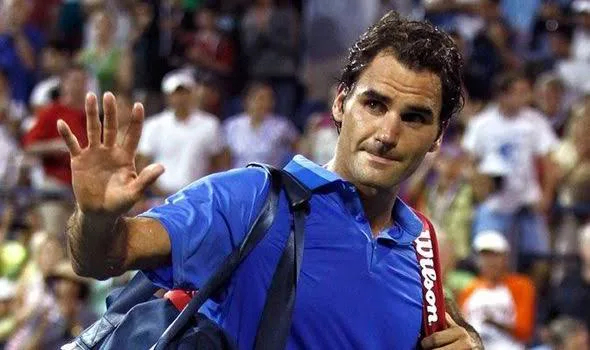Roger Federer, one of the most iconic tennis players in the history of the sport, has been..
Federer, one of the most iconic tennis players in the history of the sport, has been grappling with the physical challenges that accompany a long and illustrious career. Known for his grace on the court, his elegant style of play, and his remarkable endurance, Federer has faced a difficult period marked by injuries and recovery setbacks, particularly in the twilight of his career.
In recent years, Federer has been dealing with a series of knee injuries, which have taken a significant toll on his ability to compete at the highest level. Following multiple surgeries on his right knee, Federer has struggled to regain the form that once made him nearly invincible. The Swiss legend’s determination to return to tennis has been a focal point of his journey, but the physical pain has been a persistent obstacle. This pain isn’t just physical; it carries an emotional weight, as Federer has had to come to terms with the limits of his aging body.
Federer’s first knee surgery occurred in 2020, just as the world of tennis was disrupted by the global pandemic. The break in the tour provided some unexpected time for recovery, but subsequent setbacks led to more surgeries. In total, Federer has undergone three knee surgeries since 2020, with the most recent one in 2021 after a brief comeback. Despite these medical interventions, the pain from the wear and tear on his joints has continued to impede his return to competitive form.
For someone like Federer, who has built his legacy on movement, agility, and balance, knee injuries represent a particularly cruel irony. His ability to glide across the court, dictating the pace of rallies with his footwork, was a key part of his dominance. These injuries have made it impossible for Federer to maintain that signature fluidity, which has forced him to consider the broader implications of his health and future.
While his physical pain is evident, Federer has also spoken candidly about the emotional toll this chapter of his life has taken. The mental challenges of rehabilitation, uncertainty about recovery, and the looming question of retirement have weighed heavily on his mind. In interviews, Federer has expressed his frustration at not being able to train and compete the way he used to, acknowledging that he has had to lower his expectations.
Federer’s pain, both physical and emotional, represents the bittersweet nature of a career nearing its end. The Swiss maestro, who has won 20 Grand Slam singles titles and spent 310 weeks as the world’s number one, has been forced to accept the reality of an aging body. While fans around the world hold onto the hope of seeing him back on the court, there is a growing sense that Federer’s battle with pain could ultimately be the deciding factor in his decision to retire.
Though retirement talk has circulated around Federer for some time, he remains optimistic about a life beyond tennis. He has often expressed his gratitude for the opportunities the sport has given him and remains committed to staying involved in tennis in some capacity, whether through charity work or mentoring the next generation of players.
In the end, Federer’s pain symbolizes the passage of time and the natural progression of an athlete’s career. As much as he has conquered on the court, the one opponent even Federer cannot defeat is time itself. Whether he returns to competitive tennis or not, his legacy as one of the greatest to ever play the game remains secure. The pain he endures now is a testament to the extraordinary career he has built and the price that comes with sustained excellence at the top level of sport.


